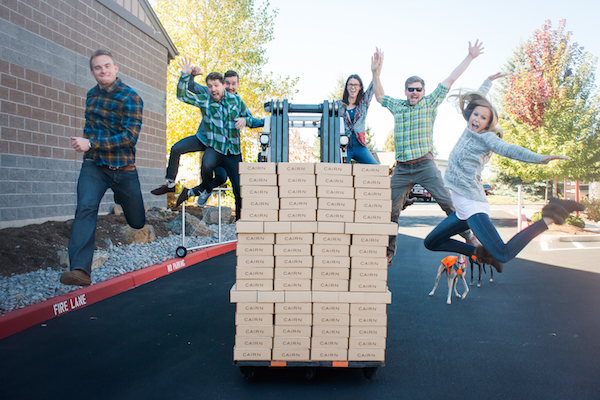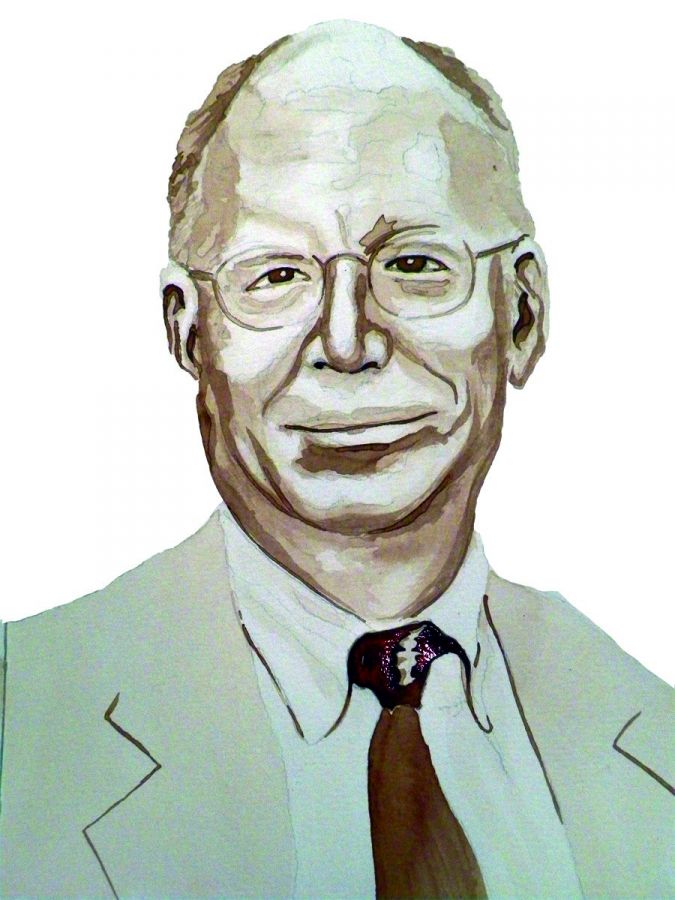Every month, more than 10,000 outdoor enthusiasts are mailed a gearhead box of goodness. The subscription business, Cairn, delights its customers with a box of four to six products for $25 a month, shipped from company headquarters in Bend.
The model is different—more innovative and with more legs—than a traditional retail company. Customers have the option to review each enclosed product for points toward a free box or other Cairn gear, making Cairn as much a data research and marketing company as a retailer.
“We marry product reviews with demographic information on file from customers, which allows us to educate brands on how their product is doing in the marketplace,” noted Cairn founder, Rob Little. Because the brands that work with Cairn value the immediate access to targeted consumers, as well as the data that’s collected about their products, it helps offset the cost of product.
Little conceived the idea while at the University of Pennsylvania’s Wharton School of Business. Don’t mistake him for a fresh-faced college kid, though. Little, 32, went back to school in 2011 to get his MBA after working for five years in the aerospace industry. He wanted to start his own business, though he didn’t expect inspiration to strike so quickly. A class on creative retail strategies focused on industries such as clothing, pets and food was just the spark he needed. “I was surprised not to see any of those examples translate into the industry I was passionate about,” said Little.
Little launched a research project that soon went into beta testing. Less than two years later, Cairn has sent more than 60,000 boxes to subscribers around the world.

photo by Talia Galvin
The name Cairn—pronounced a monosyllabic “kayrn”—resonates with outdoor adventurers. A cairn is a pile of stacked rocks, usually seen at a fork in a trail or the top of a mountain that acts as guidepost, a sign you’re on the right path. “We think this iconic image in the outdoors is symbolic of what we’re doing for outdoor enthusiasts—guiding them to their next adventure,” explained Little.
The first Cairn box was shipped in March 2014. In those early days, Little recognized all the names of the subscribers. By the second month, unfamiliar names outnumbered family and friends. Packing and shipping the boxes started out as a favor system—the reward of beer and pizza was enough for a few of Little’s buddies to help him and his wife, Betsey, pack boxes. Space was tight. Little’s two-car garage looked like an aisle in a big-box sporting goods store. “There were bikes hanging from the ceiling, skis in the corner, paddleboards leaning up against the workbench and two tables set up in the middle for work,” he said. “There was no room to move. Once you found your spot for the night, you didn’t leave it.”
The company finished 2014 with close to 500 subscribers. When that number doubled soon thereafter, Little sought more space. In February, Cairn relocated to a 4,000-square-foot warehouse in an industrial section of Bend. There, Cairn partnered with Abilitree, a Central Oregon nonprofit providing training and jobs to people with disabilities. Each month, for about ten days, Cairn would pay four to twelve people to pack an increasing number of boxes.
“I can’t say enough good things about what Abilitree is doing for their clients and this community,” Little said. “We looked forward to the days they worked because they brought energy and excitement that was contagious.”
By October, the mandate of packing boxes became too big, and Cairn began working with an East Coast fulfillment company.
Having been in business through only one holiday season, Little expects his subscriber base to grow exponentially before the close of 2015. Little’s goal is 100,000 subscribers, though he won’t lose sleep if the company doesn’t hit that number overnight. “It would scare me if it happened tomorrow; we’re not in a place to handle it,” Little said.
Growth of that magnitude would open doors to working with brands in new ways. Little kept mum on the details but said the company was hoping to break into a bigger market. “The opportunity to change how consumers and brands interact goes much deeper than a $25 subscription box,” he said.







